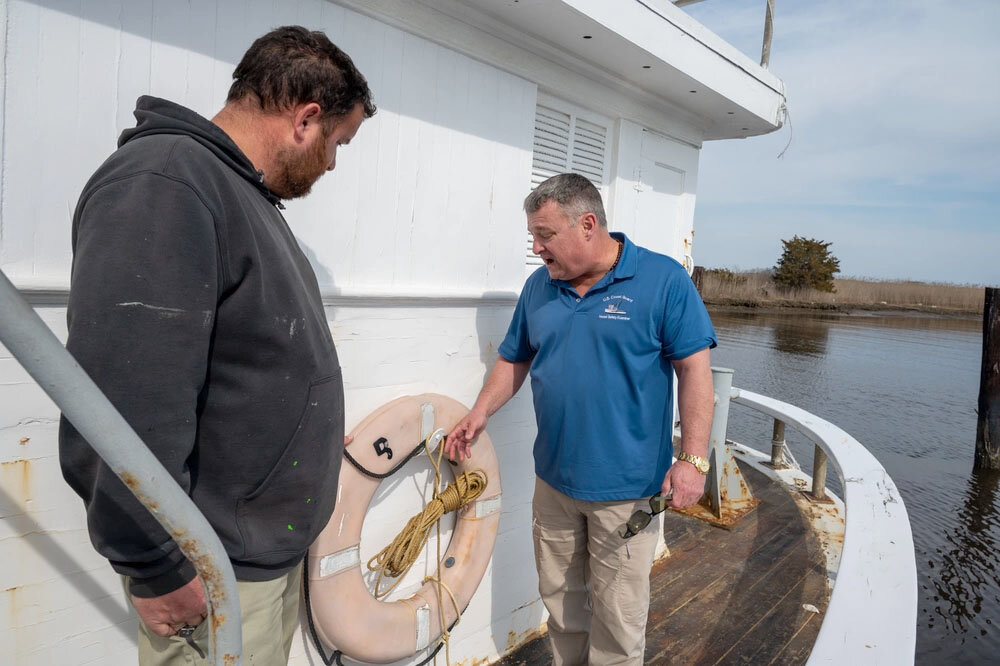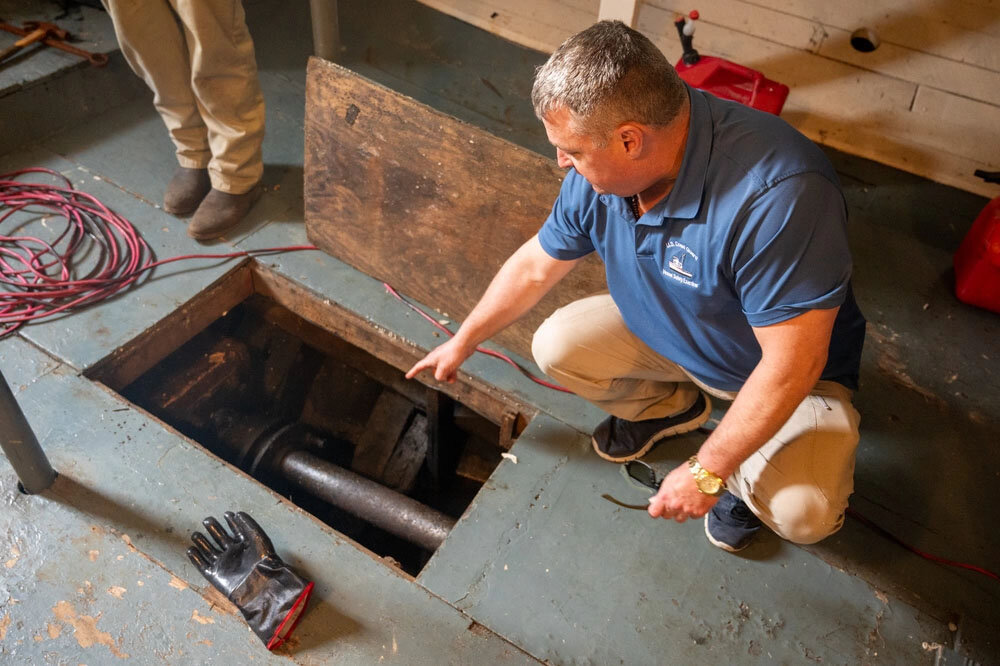Coast Guard helps commercial fishermen ensure a safe catch
As the nation's largest estuary, the Chesapeake Bay is a highly valued resource for more than 18 million people who live in its watershed. Producing about 500 million pounds of seafood each year, the …

You must be a member to read this story.
Join our family of readers for as little as $5 per month and support local, unbiased journalism.
Already a member? Log in to continue. Otherwise, follow the link below to join.
Please log in to continue |
Coast Guard helps commercial fishermen ensure a safe catch
As the nation's largest estuary, the Chesapeake Bay is a highly valued resource for more than 18 million people who live in its watershed. Producing about 500 million pounds of seafood each year, the Bay supports commercial and recreational fishing and creates one of the most economically significant regions of the Unites States.
While the Coast Guard and local environmental organizations work to protect the treasured Bay's inhabitants from pollution and over-harvesting, an associated danger threatens the safety and lives of the Bay's fishing community.
According to NOAA and the U.S. Bureau of Labor Statistics, commercial fishing is one of the country's most dangerous occupations.
With an on-the-job fatality rate that's 28.5 times higher than the average among U.S. workers, commercial fishing vessel disasters are cited as the leading cause of fatalities and drowning is the leading cause of occupational death for fishermen.
Despite fishing themed reality shows based in the north Pacific, commercial fishing dangers are not isolated to places like the Bering Sea or Gulf of Alaska. The risks associated with commercial fishing lurk in all navigable waters.
While it's a high-risk job, the dangers can be prevented.
To prevent loss of life among our region's valued fishing community, the Coast Guard manages a Dockside Safety Exam Program.
As part of the program, Coast Guard Vessel Safety Examiners travel to regional ports and marinas where they provide free, no-penalty dockside safety exams for commercial fishing vessel owners and operators.
During the exams, which usually take less than an hour, expert safety examiners check a vessel's life-saving equipment to ensure it can be relied on. Upon successful completion of the safety exam, a vessel owner will be issued a decal with an expiration date of two years from the date issued.
Vessels with a valid decal can expect to see abbreviated Coast Guard boarding times if the decal was issued in the last two years and have the comfort of knowing their emergency equipment is in working order in case of an emergency.
"What we do for the local fishing community is support their workplace safety," said Timothy Diehl, a Coast Guard vessel safety examiner from Sector Maryland-National Capital Region in Baltimore.
Most of Diehl's workdays are spent traveling to area marinas where he meets with commercial fishing vessel operators and owners.
Diehl is a Coast Guard veteran and native of Airville, Pennsylvania, who grew up fishing the Chesapeake Bay. Diehl is passionate about supporting the regional fishing community and loves getting to know and support local watermen.
He said his primary goal during dock-side visits is to help ensure safe conditions of fishing vessels, but also to raise awareness of the Coast Guard's free safety program.
"Safety issues, or issues with vessel documentation that I find during a dock-side exam are no penalty," Diehl said. "We are not there for punitive action; we offer educational resources and provide our contact information for future questions or support. We also carry some safety repair gear to help with on-the-spot fixes to unsafe equipment."
Diehl said it's important that the fishing community see him as a confidant and understand he is there to help.
Diehl recently traveled down Maryland's Eastern Shore where he caught up with John Horseman, captain and co-owner of Madison Bay Seafood, a commercial fishing business that provides oysters, crabs, fish and other catches every day to restaurants and markets along the East Coast.
Horsman and his brother, who come from a long line of watermen, have been Fishing the Bay's waters since they were young boys.
"We take Coast Guard inspections seriously to keep our crews and ourselves safe," said Horseman. "We have never had a reported injury."
For the safety of watermen, commercial fishing vessels that operate beyond three nautical miles from shore are mandated to have and successfully complete a Dockside Safety Exam.
Be sure to have a safe catch, call your nearest Coast Guard Dockside Examiner to schedule a vessel safety exam.









